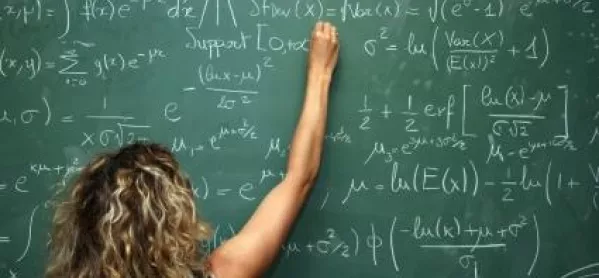England joins the elite for maths and science

English pupils are among the best performers in the world at maths and science, the biggest international testing study ever conducted found this week.
They pulled off a stunning result in the rankings of 10 and 14-year-olds’ performance across 59 countries.
Primary pupils have now registered the largest improvement of any nation in maths since the first study was conducted in 1995. In science, they cemented their position near the top of the rankings.
The only dampener on the celebrations was a finding that our pupils’ enjoyment of the tested subjects has fallen since the 1990s.
England finished in the top seven countries in all four tests, taken by 425,000 pupils worldwide and known as the Trends in International Mathematics and Science Study (Timss).
This is England’s best performance in international tests for eight years. It might bring respite for ministers after months of “failing schools” headlines.
Ed Balls, Schools Secretary, said: “This shows that we are on our way to being world class, but as we move towards this goal we need to make sure that every child has fun in the classroom as well as achieving good results.”
A sample of 10-year-olds in 143 English primaries was tested in maths and science, as were 14-year-olds in 137 secondaries in both subjects. In each of the four assessments, England ranked ahead of competitors including Germany, the Netherlands, Sweden, Australia and the United States, but behind Far East nations Singapore, Hong Kong, Korea, Taiwan and Japan.
Maths
The latest results, based on tests taken in 2007, represent a big improvement in maths on the last tests in 2003.
The more dramatic rise occurred in the secondary maths tests, where England rose from 18th out of 46 last time to 7th out of 49 in 2007.
England’s score improved from 498 to 513 against an international average of 500. England’s fastest improvement was among middle-ability pupils. Ministers take this as vindication of their numeracy strategy, introduced in 1999.
This is only the second time since the 1960s that England has performed above the international average in secondary maths - the first time was in 2000 in the rival Pisa study, carried out every three years by the Organisation for Economic Co-operation and Development.
In primary maths, England also finished 7th out of 36 nations, scoring 541, well above the international average. In 2003, England finished 10th out of 25.
Science
Traditionally, science has been England’s strongest suit in international rankings, and results were good.
In primary science, the score rose marginally from 540 to 542, although it slipped down the rankings from 5th out of 25 to 7th out of 36 as the scores of others rose.
In secondary science this picture was reversed with England rising from 7th out of 46 last time to 5th out of 49, despite a slight fall in its points score from 544 to 542. England’s score has risen only slightly since 1995, although in that year it was already performing well.
Timss features many of the advanced economies, although some nations such as Finland, which is perennially at or near the top in the Pisa tests, France, Spain, Canada and China do not participate.
This time last year, England’s results for Pisa were disappointing, with its ranking falling in English, maths and science.
A separate analysis of the Timss data by the National Foundation for Educational Research found that the proportion of pupils reporting “highly positive” attitudes to maths and science has fallen sharply since the 1990s. In secondary maths, it has fallen 25 percentage points to 40 per cent since 1999; for secondary science the drop was 21 points to 55 per cent.
In primaries the proportion reported as highly positive fell from 76 to 62 per cent from 1995 to 2007. In science the drop was from 76 to 55 per cent.
Ministers said their curriculum reforms, giving teachers more freedom to tailor teaching to their pupils’ needs, would address this.
Christine Blower, acting general secretary of the National Union of Teachers, said: “The obvious question is whether test and examination hot- housing is actually turning off young people’s enjoyment.”
But she said the results were “very good news for pupils, parents and teachers alike”.
Mary Bousted, general secretary of the Association of Teachers and Lecturers, said: “The doom-mongers who undersell English schools have been proved wrong.”
Sir Peter Williams, author of a government review on primary maths teaching, cautioned against trying to ape Far East countries to top global rankings. He said: “I’ve been at homes of Korean friends when their children return from crammers at 10pm. It’s not a system I would wish to see us copy.”
Keep reading for just £1 per month
You've reached your limit of free articles this month. Subscribe for £1 per month for three months and get:
- Unlimited access to all Tes magazine content
- Exclusive subscriber-only stories
- Award-winning email newsletters



